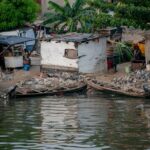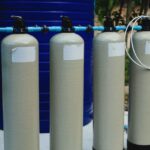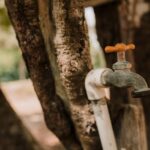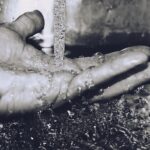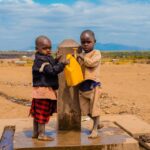Empowering Women Through Water Access in Mauritania’s Villages
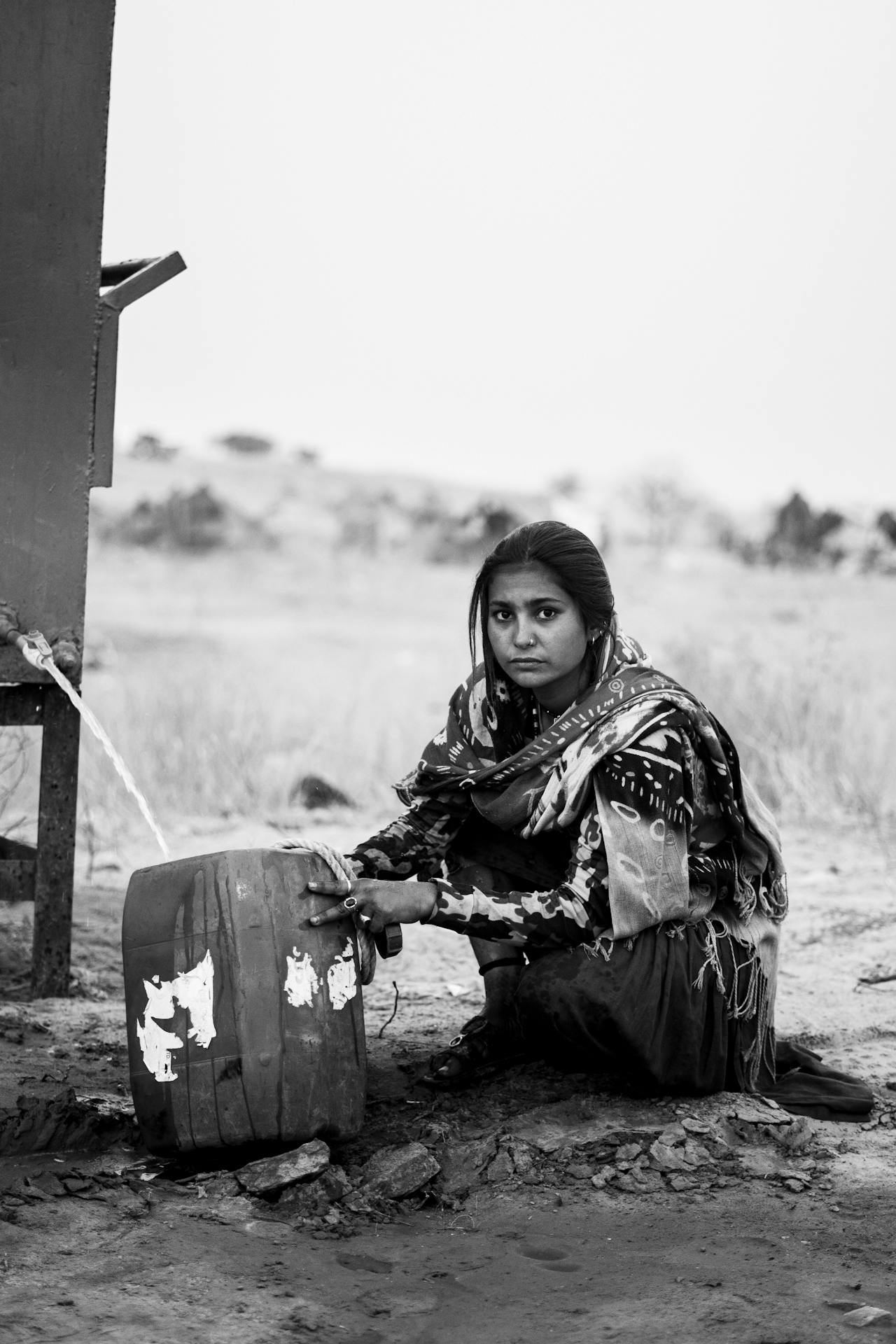
In many rural parts of Mauritania, getting clean water is a daily struggle. For most families, there’s no tap or nearby well to fetch water from. Instead, people have to walk long distances, often under the hot sun, just to collect water for drinking, cooking, and washing.
The people carrying this heavy responsibility are mostly women and girls. It’s a task that takes up several hours each day and affects almost every part of their lives. So when villages gain better water access, it does more than quench thirst – it changes futures.
This article explores how water access shapes the lives of women in Mauritania’s villages and why it’s a powerful step toward building stronger, healthier communities.
The Burden of Water Collection on Women and Girls
In Mauritanian villages, collecting water isn’t just a simple chore – it’s a demanding job that falls mainly on women and girls. According to UNICEF, women and girls spend 200 million hours collecting water everyday.
These journeys aren’t only tiring but also risky. Women often have to carry heavy containers on their heads or backs, sometimes over rough, dry terrain. Girls, specifically, miss out on school because of this daily duty, limiting their chances for education and personal growth.
Besides the physical strain, it affects families financially. Time spent fetching water is time lost for farming, small trading, or other activities that could support the household. The burden of water collection keeps many families, especially women, stuck in a cycle of poverty.
How Water Access Changes Lives
When clean water is made available close to home, everything starts to shift. Girls who once spent hours fetching water can go to school and focus on their education. Women, freed from long treks for water, can take up small businesses, learn new skills, or simply rest and care for their families better.
Local water points, like wells or boreholes, also mean better health for everyone. Families no longer have to rely on dirty, unsafe water from far-off sources. According to the World Health Organization (WHO), access to safe water reduces waterborne diseases like diarrhea and cholera, which are major health risks in Mauritania.
The ripple effect of better water access is powerful. It brings more opportunities for women, improves the well-being of children, and helps entire communities grow stronger.
The Link Between Water, Health, and Gender Equality
Water access isn’t just about quenching thirst – it’s closely tied to health and fairness in daily life. In Mauritania, where women are typically the caregivers, poor water quality and limited access increase their workload even more. When a family member falls sick from drinking unsafe water, it’s often the women who step in to care for them.
Safe, nearby water means fewer illnesses, which means women can use their time for other important things, like earning income, participating in community meetings, or simply spending time with their families. This shift helps challenge the idea that a woman’s place is only in the home or fields.
As women’s responsibilities shift from survival to development, their voices grow stronger in decision-making – both in their families and in the wider community. It’s one of the ways water access quietly supports gender equality.
Education: A Ripple Effect of Water Access
When girls are no longer burdened with the task of fetching water for hours, they get the chance to stay in school. In Mauritania, this simple shift can change a girl’s future. According to UNESCO, every additional year of schooling for girls increases their potential income and reduces the risk of early marriage.
Clean, nearby water means schools can have safe drinking water and functioning toilets, making it easier and safer for girls to stay in class – especially once they reach adolescence. Water access helps keep doors open for girls to dream bigger and learn skills that benefit their families and communities.
Reducing Health Risks for Pregnant Women and Mothers
Pregnant women and mothers of young children are particularly vulnerable when clean water is scarce. Carrying heavy containers of water over long distances can lead to health complications during pregnancy. And when water is unsafe, it puts both mothers and babies at risk of diseases, like diarrhea, cholera, and typhoid.
By improving water access, villages can reduce these health risks. Safe water near the home ensures that pregnant women can stay healthier and new mothers can take better care of their babies without worrying about harmful waterborne diseases. This not only saves lives, but eases the emotional and physical strain many women silently endure.
Water Access and Women’s Economic Opportunities
When women are freed from long daily trips to fetch water, they gain something priceless: time. This extra time opens doors for them to start small businesses, join local markets, or learn new skills like tailoring, soap-making, or farming.
In some African communities, women have gone on to form cooperatives that produce and sell handmade products or farm produce – boosting family incomes and improving local economies. For Mauritania’s rural women, having reliable water nearby means they too can focus on income-generating activities that help break the cycle of poverty.
Community-Led Water Projects and Their Impact
One thing that makes water projects truly successful is community involvement, and that includes women. In places where women have a say in managing water points or leading committees, the projects tend to last longer and run better.
For example, in several African countries like Senegal and Mali, community-led water committees with active female members have seen reduced breakdown rates of wells and improved hygiene practices.
Mauritania has similar potential. When women are part of choosing where a well should be dug or how it should be maintained, those decisions reflect the real, daily needs of the people using the water.
Aqua Maya has some of projects of its own in the works. The plan is to focus on this kind of community-driven work in Mauritania’s villages – ensuring women have the opportunity to shape solutions that directly affect their lives.
Challenges to Overcome
Even with the promise of water access, challenges remain. Deep-rooted traditions often limit women’s roles in decision-making. In some places, it’s still unusual for a woman to lead a community project or speak up about public matters.
There’s also the issue of resources. Drilling wells and maintaining water systems cost money – something many rural villages don’t have. Even when NGOs step in, projects need to be maintained long after the digging is done, and without local skills or funding, many water points fall into disrepair.
But these obstacles aren’t impossible to overcome. They show the need for long-term, steady solutions that put communities, especially women, at the heart of every water project.
The Role of Men and Community Leaders
While water collection is largely a women’s responsibility, lasting change requires the involvement of men and community leaders. Shifting cultural expectations and ensuring women have a seat at the table takes collective effort.
Encouraging male leaders to support water projects that involve women helps challenge traditional roles and promote fairness. In communities where men actively back women-led projects, those projects often gain more respect and stability. Change becomes easier when the whole community values the role of women in managing shared resources.
Building Resilience Against Climate Challenges
Mauritania is one of the countries most affected by climate change in West Africa. Drought, desertification, and unpredictable rainfall make it even harder for rural families to find safe, steady water sources.
Improving water access through wells, boreholes, and rainwater harvesting helps villages build resilience against these harsh environmental changes. When water is available locally, women and their families don’t have to depend on unreliable rivers or seasonal ponds. Community water projects also allow people to store and manage water more wisely, better preparing them for dry seasons or sudden shortages.
Conclusion
Water is more than just a necessity – it’s the key to unlocking potential. In Mauritania, where women bear the brunt of water collection, access to clean, nearby water can be life-changing. It empowers women to reclaim their time, invest in their futures, and contribute to their communities in ways they never could before.
When women are given the opportunity to lead in water projects, when they have a say in the resources that shape their lives, the ripple effect is far-reaching. Health improves, education flourishes, and families find themselves on the path to greater well-being.
Though challenges remain, the future is hopeful. With more investment in sustainable, community-led solutions, we can pave the way for a new generation of women who are not only survivors, but leaders, champions, and changemakers.
Access to clean water is not just a basic need – it’s a catalyst for lasting change. When women are empowered with the time, health, and opportunities that water brings, they become the driving force for healthier, stronger communities. As Mauritania and other regions in West Africa work toward sustainable water solutions, we’re not just improving lives – we’re creating pathways for a brighter, more equitable future.
Sources
2. https://pmc.ncbi.nlm.nih.gov/articles/PMC4889070/
3. https://www.iied.org/global-water-initiative-senegal
4. https://www.adaptation-undp.org/explore/africa/mauritania

